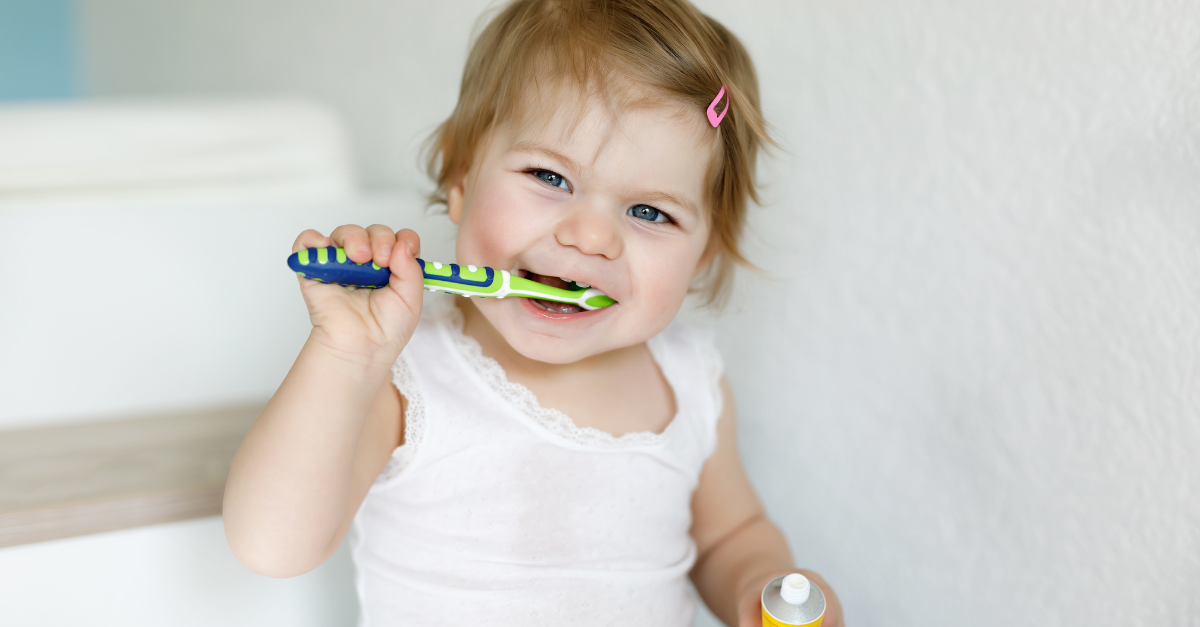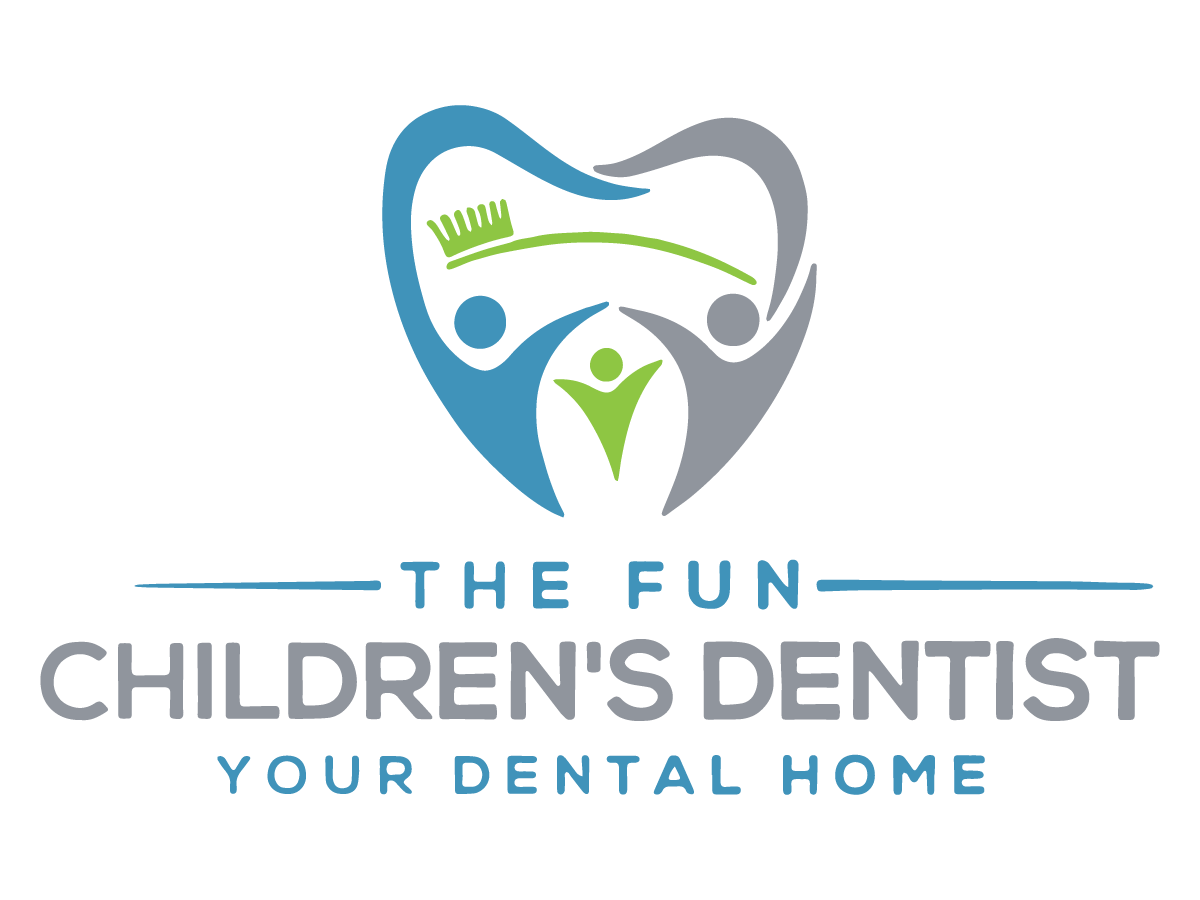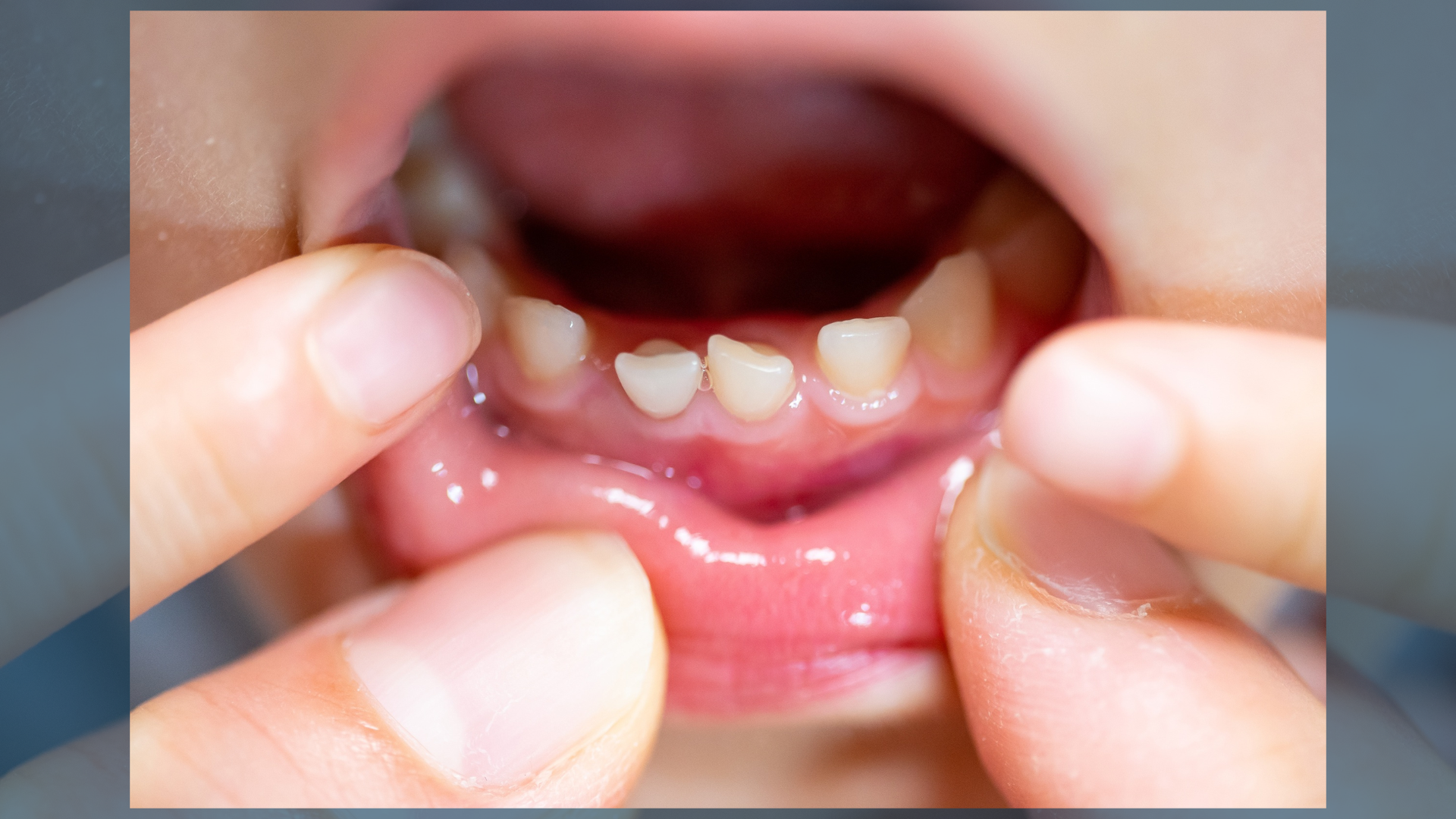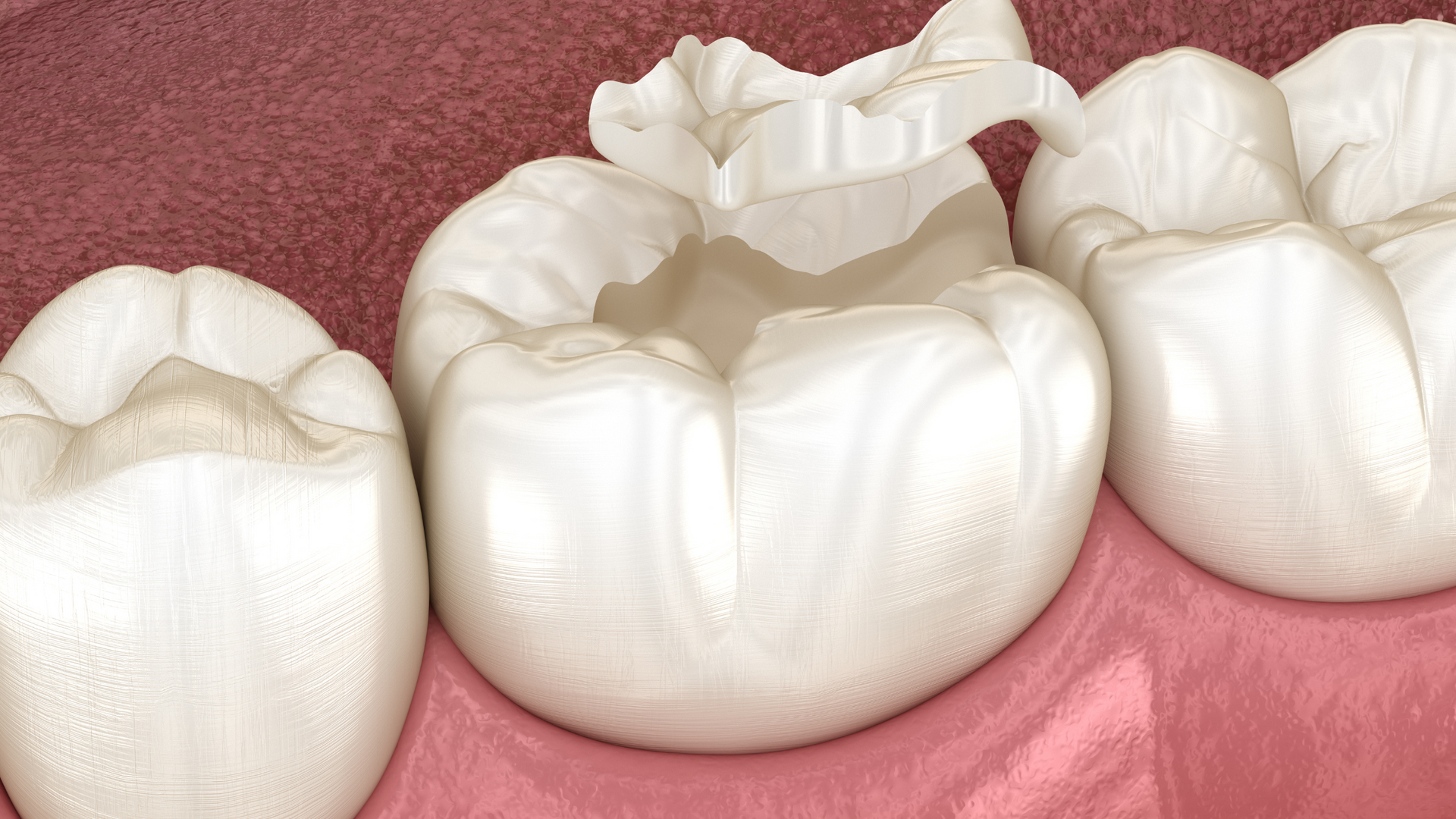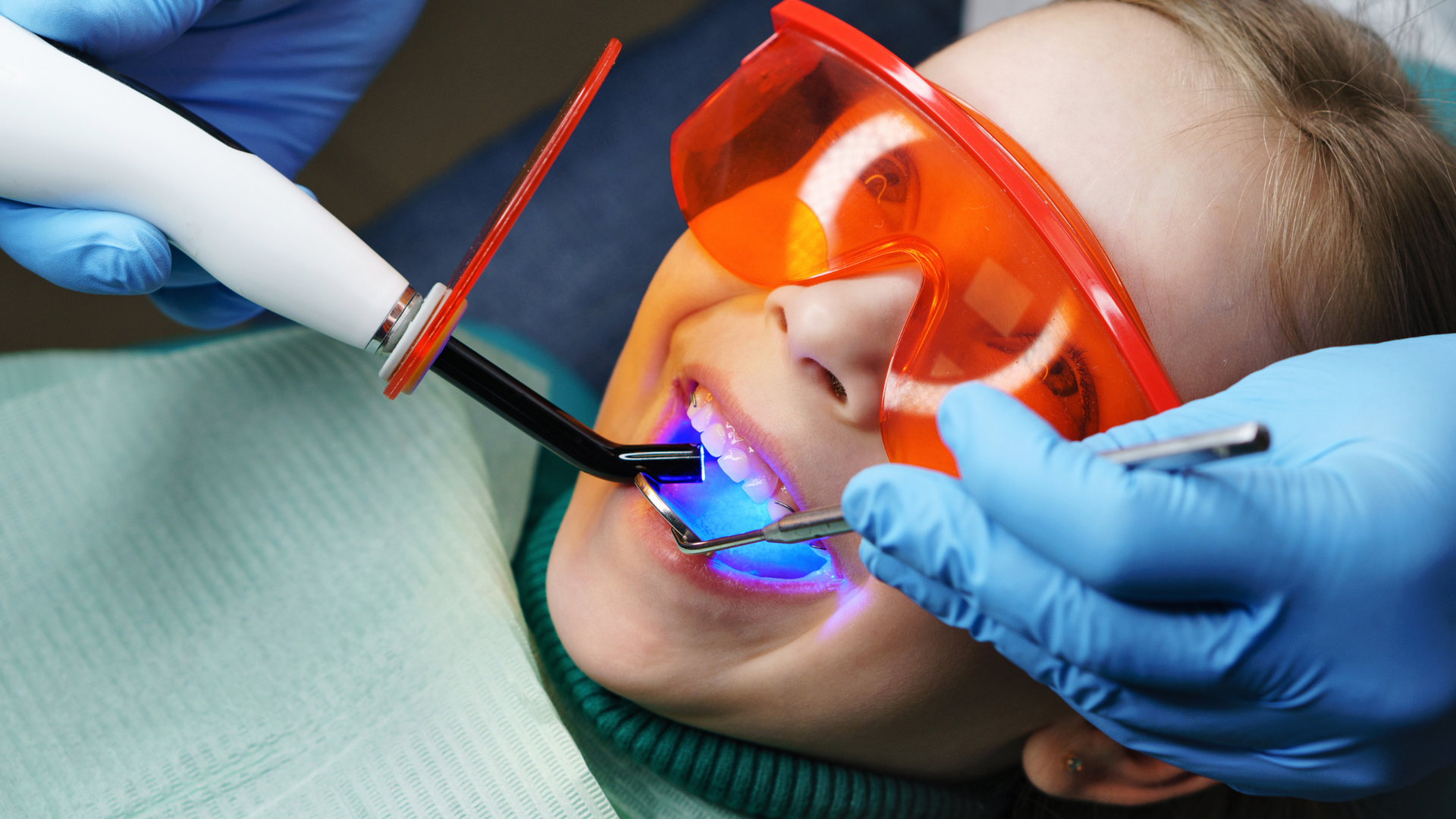How Often Should Kids Have a Dental Exam?
Texas Parents’ Guide to Healthy Smiles
As a parent, you want what’s best for your child’s health — and that includes their smile. Knowing how often a child should see the dentist is a key part of setting them up for a lifetime of strong oral health. If you're looking for a pediatric dentist in Texas, this guide will help you understand:
- When your child should first begin dental visits
- How often kids should have dental exams (by age and risk)
- What a pediatric dentist checks during these visits
- Why consistency matters in preventing more complex dental problems
- How to choose and maintain a “dental home” in Texas
Let’s dig in!
Why Regular Dental Exams Matter for Kids
Before we jump to “how often,” it’s worth asking: what’s the point of scheduling these visits? Here’s why regular kids dental exams are so important:
- Early detection of problems — Cavities, developmental issues, oral habits, and alignment concerns can begin very early (even with baby teeth). Examining regularly lets dentists catch problems while they’re still small and treatable.
- Preventive care and protective treatments — During exam visits, your pediatric dentist can apply fluoride, suggest sealants, provide hygiene coaching, and monitor risk factors. These interventions can significantly reduce future treatments.
- Baseline and monitoring over time — Having consistent exams builds a record of your child’s oral development. Dentists track changes, compare past X-rays, and spot trends early.
- Education and behavior reinforcement — These visits teach both parents and kids healthy habits: brushing, flossing, diet, and oral hygiene tailored to each developmental stage.
- Reducing emergency or invasive treatment — Waiting too long often leads to more extensive procedures (fillings, crowns, root canals, or even extractions). Regular exams help avoid that.
Because of all this, pediatric professional organizations recommend establishing a “dental home” early — a stable, ongoing care relationship with a dentist who follows your child through ages.
When Should a Child First Visit the Dentist?
A key starting point is early initiation of dental care. According to the American Academy of Pediatric Dentistry (AAPD):
- The first dental exam should occur when the first tooth erupts (often around 6 months of age), or by the child’s first birthday (12 months) at the latest.
- Even though baby teeth eventually fall out, keeping them healthy is vital — they help with chewing, speech development, and acting as “space holders” for permanent teeth.
- At that first visit, the dentist will perform a simple exam, evaluate oral hygiene and fluoride exposure, and counsel parents on diet, teething, habits (thumb-sucking, pacifier), and injury prevention.
This early “infant oral health exam” helps lay a foundation for preventive care, risk assessment, and establishing comfortable familiarity for your child.

How Often Should Kids Have Dental Exams?
Once the first exam is done, what frequency is ideal? The AAPD’s Recommended Dental Periodicity Schedule is the gold standard many pediatric dentists follow.
Standard Recommendation: Every 6 Months
For many children, the default follow-up schedule is every six months (twice per year). Pediatric Dentistry of San Antonio This frequency has become the benchmark in pediatric dentistry because:
- It balances preventive care with cost and patient burden
- It allows dentists to catch new decay or gum issues before they escalate
- It aligns with professional cleaning, polishing, and fluoride intervals
Many pediatric practices in Texas likewise adopt the six-month model; for example, pediatric dentistry offices advertise routine exams every six months.
Adjusting Frequency Based on Risk
However, “every six months” is not one-size-fits-all. Some children may need more or less frequent visits depending on their oral health risk profile. Key factors a pediatric dentist considers include:
- Caries (cavity) risk — Children who have had cavities before, poor home hygiene, diets high in sugars, or low fluoride exposure may need more frequent checkups (every 3–4 months).
- Gum or periodontal status — Early signs of gingivitis or gum inflammation may warrant closer monitoring
- Tooth development & eruption — During transition phases (losing baby teeth, new adult teeth coming in), dentists may want to keep a closer watch
- Orthodontic / alignment issues — If spacing, crowding, bite issues, or habits like thumb-sucking are concerns, more frequent visits allow timely intervention
- Medical conditions or special needs — Children with certain health conditions, medications, or special needs might require tailored schedules
- Previous dental history — If aggressive decay or restorative work (fillings, crowns) is present, closer follow-up ensures that treatments are holding up
When deviations are needed, the pediatric dentist will recommend a custom recall interval rather than rigidly sticking to six months.
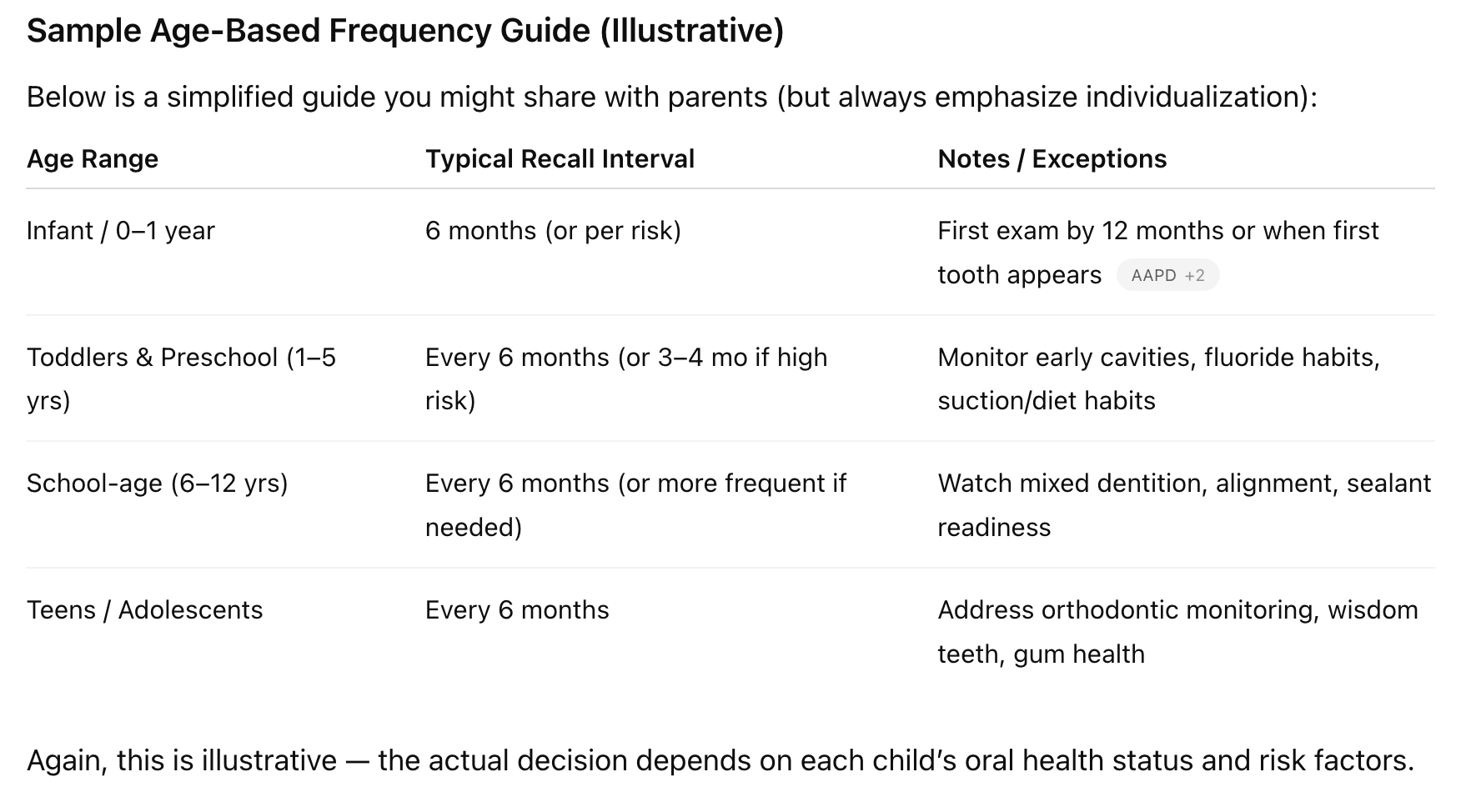
What Happens During a Kids Dental Exam?
When your child visits a pediatric dentist in Texas for a dental exam, here’s a look at what typically occurs — this helps set expectations and ease possible anxiety.
- Medical & dental history update
The dentist or staff will review changes in health, medications, diet, fluoride exposure, oral habits (thumb-sucking, pacifier, nail-biting), and any symptoms (pain, sensitivity, swelling). - Oral examination
A full visual check of teeth, gums, tongue, lips, palate, cheeks, and oral soft tissues. The dentist checks for decay, white spots, gum inflammation, lesions, and developmental abnormalities. - Radiographs (X-rays), if needed
Based on risk, age, or clinical findings, low-radiation digital X-rays may be taken to detect hidden decay, check tooth root development, anomalies, or underlying problems. The timing is guided by AAPD’s radiograph guidelines. - Professional cleaning (prophylaxis)
Plaque, soft deposits, and light stains (extrinsic) are gently removed using child-sized instruments or polishing. This “prophy” is integral to pediatric exams and preventive care. - Fluoride application / remineralization
To strengthen enamel and prevent decay, the dentist often applies fluoride varnish or other topical fluoride treatments. - Sealant assessment / placement
For older children with newly erupted molars, the dentist may recommend or apply dental sealants to protect pits and fissures from decay. - Oral hygiene coaching & anticipatory guidance
The dentist or hygienist will work with you (and the child) on brushing, flossing, diet, sugar habits, and preventive habits tailored to their age. - Treatment planning or referrals
If cavities, developmental issues, habit-related concerns, or orthodontic cues are present, the dentist proposes treatment options or referrals to specialists. - Scheduling next exam / recall interval
Based on risk and findings, the dentist recommends when the child should return (typically in six months, or earlier for high-risk children).
Because every part of the exam is tied to the child’s age, risk, and unique oral health status, it’s important to follow through with the dentist’s recommended interval.
Why Consistency Helps Prevent Bigger Dental Problems
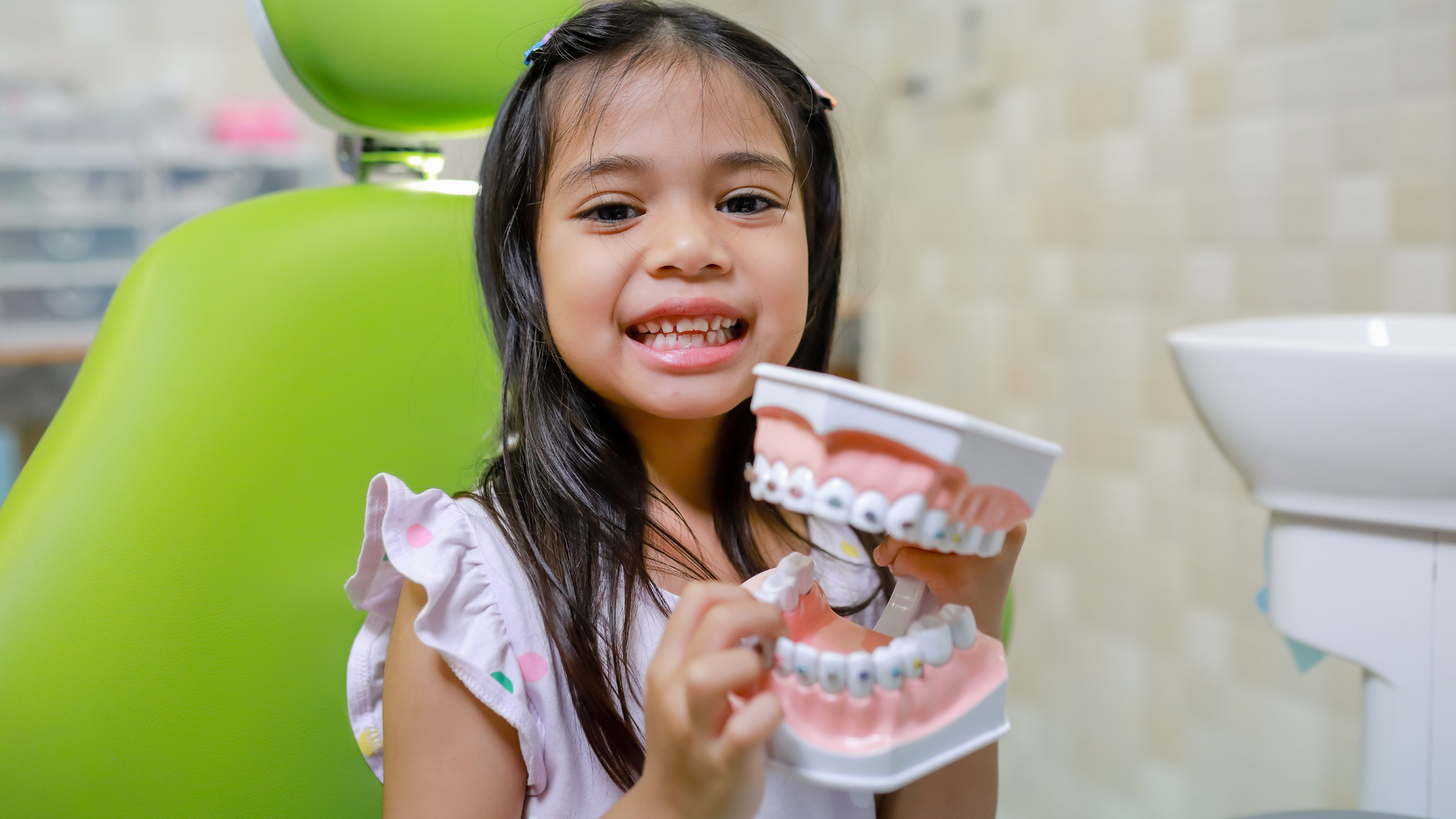
Skipping exams or waiting too long can allow small dental issues to grow into complex, expensive, and potentially painful problems. Here’s how consistency makes a difference:
- Cavities caught early are easier to treat — Treating a small, early-stage lesion is much less invasive (e.g., minimally-invasive restoration or remineralization) than treating large decay.
- Better outcomes for restorations — Fillings, crowns, and other treatments last longer when they’re not placed in compromised contexts.
- Reduced need for sedation or anesthesia — Managing issues early often avoids procedures requiring sedation, which is riskier for children.
- Better alignment and orthodontic planning — Regular exams allow timely guidance or referral for alignment, interceptive orthodontics, or habit-breaking (thumb-sucking).
- Lower overall cost and stress — Preventive care is far more cost-effective, less traumatic, and less disruptive to school and family schedules.
- Improved oral health trajectory into adulthood — Establishing good habits and steady care sets kids up for healthy adult teeth.
In Texas, where access and continuity matter, having a trusted pediatric dentist in Texas you visit consistently means your child receives coordinated care, familiarity, and early interventions before issues spiral.
Tips for Texas Parents Seeking a Pediatric Dentist
Here are some considerations and tips to help you find and maintain a good dental care relationship:
- Choose a dentist who specializes in pediatrics — Pediatric dentists have advanced training in child behavior, growth, and development, making visits more comfortable and effective.
- Check proximity and convenience — You want a location near your home, school, or commuting route in Texas.
- Ask about child-friendly environment / office amenities — Kids feel more comfortable in offices with friendly décor, kid-sized instruments, distractions (videos, games), and staff trained in child care.
- Review recall policies — Ask how strictly they adhere to the six-month standard and how they manage high-risk patients.
- Insurance / coverage and affordability — Confirm whether they accept your insurance or Medicaid plan, or offer in-office membership plans.
- Accessibility and scheduling flexibility — Evening, weekend, or emergency scheduling options can be a relief when dental issues arise.
- Parent involvement and communication — A good practice will involve parents, explain things clearly, and welcome questions.
Once you find a great pediatric dentist, stick with them — the consistency helps build your child’s trust and your dentist’s understanding of their dental history.
The Fun Children’s Dentist Difference
Schedule your child’s dental exam with The Fun Children’s Dentist today and give them the gift of a lifetime — a bright, healthy smile they’ll love to share!
The Fun Children’s Dentist Difference
We know kids aren’t just small adults — they have unique dental needs and big personalities! At The Fun Children’s Dentist, we combine expert pediatric care with a joyful, stress-free approach.
- Child-centered environment: Colorful rooms, kid-sized tools, and gentle explanations.
- Experienced pediatric team: Specialists who truly understand children’s growth and behavior.
- Preventive focus: Cleanings, sealants, fluoride, and education are at the heart of every visit.
- Convenient scheduling: We make it easy to stay on top of appointments.
- Texas families trust us: We’ve helped thousands of kids smile with confidence!
A healthy smile today means a confident smile tomorrow.
Blogs and Resources for Happy and HealthyTeeth
